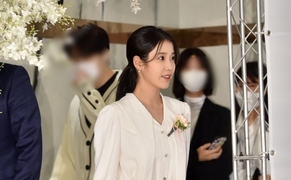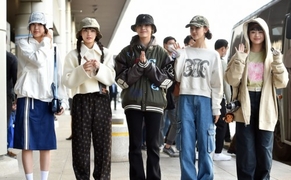A Stage full of Musical Maturity
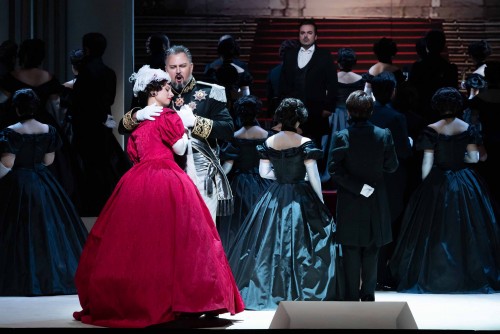 |
| A scene of the opera "Eugene Onegin" by New National Theatre, Tokyo/ Provided by ©Masahiko Terashi/New National Theatre, Tokyo |
This fall, New National Theatre, Tokyo opened a new production of Tchaikovsky’s ‘Eugene Onegin’. The opera, Eugene Onegin, as famously known, is based on the poetic novel by Pushkin, one of Russia’s most highly acclaimed writers. This piece is set in late fall in a country estate, making it very fitting for the fall season.
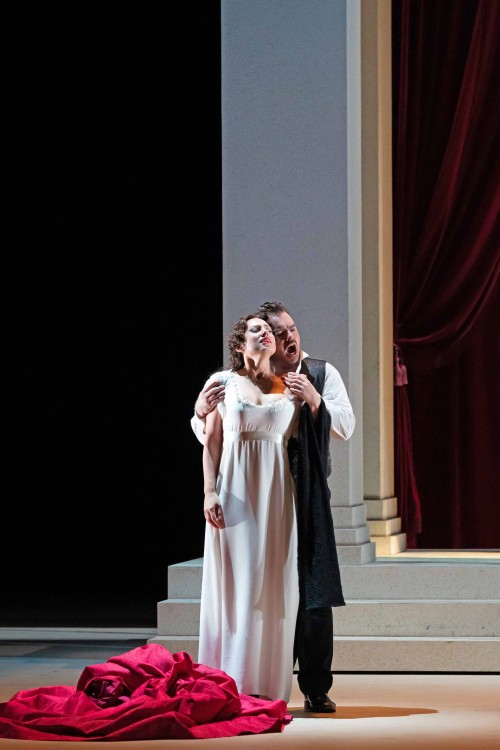 |
| A scene of the opera "Eugene Onegin" by New National Theatre, Tokyo/ Provided by ©Masahiko Terashi/New National Theatre, Tokyo |
The 2019/2020 season marks the second season for Ono Kazushi to take over as artistic director at New National Theater, Tokyo. This year, the New National Theatre, Tokyo has had an excellent lineup of opera performances. These are evident not only by Director Ono’s passion for Japanese contemporary opera, but they also include diverse and varied works from Puccini and bel canto opera to Russian opera.
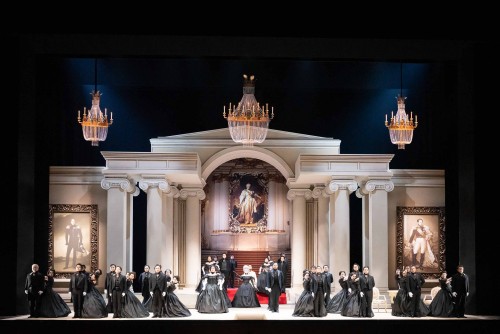 |
| A scene of the opera "Eugene Onegin" by New National Theatre, Tokyo/ Provided by ©Masahiko Terashi/New National Theatre, Tokyo |
New National Theatre, Tokyo’s (NNTT) opera, Eugene Onegin consist of a mostly Russian cast from its directors, lead opera singers, stage artists, costumes to choreographers and more. It is regarded to be a wise choice in order to perfect the Russian accent and to bring out the unique sensibilities of Russian music to the fullest.
The stage of the opera was perfectly harmonized, like paintings from the classical era. From Act 1, at the garden of the country estate to the third act at the house of the nobleman’s Prince Gremin, the stage design featured Greek columns of the Ionian style that provided a strong sturdy center and stable balance. This was in distinct contrast to the labile feelings of the insecure characters.
 |
| A scene of the opera "Eugene Onegin" by New National Theatre, Tokyo/ Provided by ©Masahiko Terashi/New National Theatre, Tokyo |
It is often a surprising delight to witness high level opera performances when appreciating operas in Japan. The Tokyo Philharmonic Orchestra, led by conductor Andriy Yurkevych from Ukraine, also played a meticulous and astute sound of string music. The sound of string music was reminiscent of a thick velvet with a glossy luster. The orchestral music also served Tchaikovsky's intention well, which was subtitled "lyric scenes" especially for the opera.
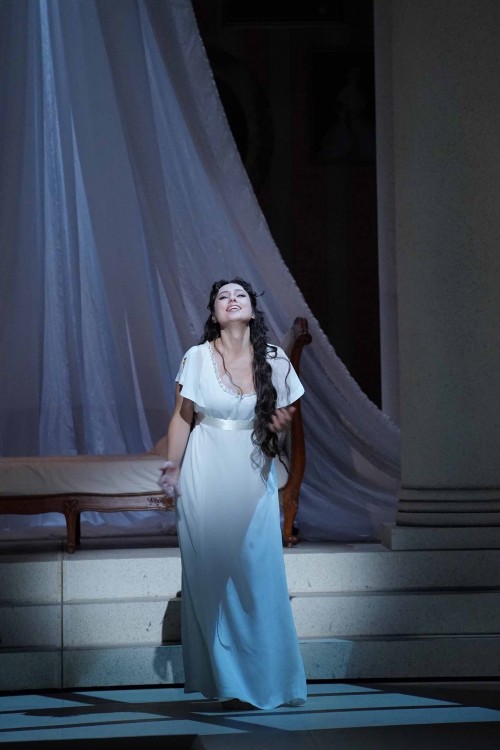 |
| A scene of the opera "Eugene Onegin" by New National Theatre, Tokyo/ Provided by ©Masahiko Terashi/New National Theatre, Tokyo |
Based on their rich voices and clear tones, the roles of cynical Onegin and the serious Lensky is well performed by baritone singer, Vasily Ladyuk, and tenor Pavel Kolgatin respectively. Soprano Evgenia Muraveva also received rousing applause for her part portraying the dual sides of passion and reason of Tatyana, with her superb singing ability and acting. In particular, her singing harmonized well with the orchestra in the letter scene in Act 1 and in the scene of Duchess’s dilemma in Act 3.
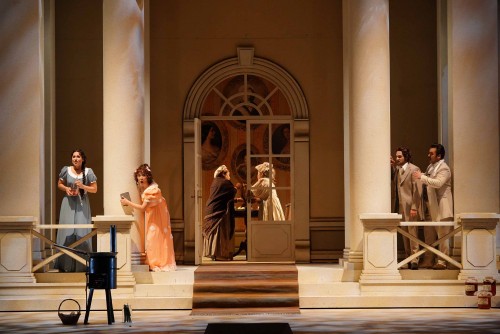 |
| A scene of the opera "Eugene Onegin" by New National Theatre, Tokyo/ Provided by ©Masahiko Terashi/New National Theatre, Tokyo |
In a program note, director Dmitry Bertman revealed that he was inspired by Stanislavsky's method for this production. Perhaps that was why the production of this opera seemed classical. It seems that the fairly exaggerated portrayal of the performances of the choir or the supporting singers was intended to accentuate the realism of the drama.
The piece was most brilliant at the moment when it featured the prowess and musicality of the vocalists and the orchestra without dramatic interventions. Tchaikovsky's music, multiply combined with lyricism, longing, passion and despair was unutterably unfolded. The stage, filled with musical maturity, was filled with only the purest and most hopeless feelings.
Sooyeon Sohn (Opera Critic and Professor at Sangmyung University / yonu44@naver.com)
Supervision : Youngyee Kim
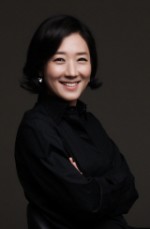 |
#Tokyo #opera #Eugene Onegin #Tchaikovsky #NNTT
Copyright by Asiatoday
Most Read
-
1
-
2
-
3
-
4
-
5
-
6
-
7



















